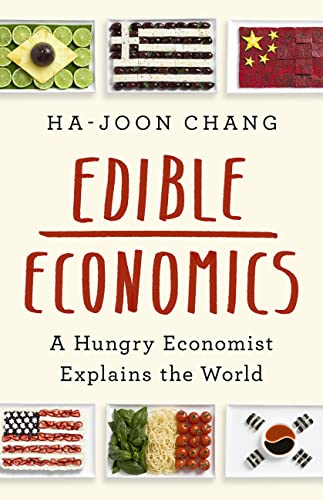On November 3, the Alaska World Affairs Council hosted Dr. Ha-Joon Chang, author of Edible Economics and Professor of Economics at SOAS University of London, for a captivating virtual program: Edible Economics: A Hungry Economist Explains the World. This event was held in partnership with Councils across the U.S., including World Affairs Councils of Kansas City, Houston, Oregon, Seattle, Connecticut, Charolette, Dallas Fort Worth, and Juneau.
From noodles to chocolate, Dr. Chang explored chapters in his book, illustrating how the foods we eat reveal deeper lessons about trade, culture, and the global economy. His insights reminded attendees that economics isn’t just about numbers—it’s about people, choices, and the interconnected world we share.
We’re grateful to our partner Councils for making this collaborative program possible and to all who attended, contributing to a lively and insightful conversation.
About the Speaker
Ha-Joon Chang is a Distinguished Research Professor of economics, as well as Co-director of CSST (Centre for Sustainable Structural Transformation) and of DLD (Development Leadership Dialogue) at SOAS University of London. Previously he taught at the Faculty of Economics at the University of Cambridge (1990-2022). In addition to numerous journal articles and book chapters, he has published 17 authored books (five co-authored) and 11 edited books (seven co-edited). His main books include The Political Economy of Industrial Policy (1994), Kicking Away the Ladder (2002), Bad Samaritans (2007), 23 Things They Don’t Tell You About Capitalism (2010), Economics: The User’s Guide (2014), and Edible Economics (2022). His writings have been translated and published in 46 languages and 48 countries. Worldwide, his books have sold around 3 million copies. Chang has advised numerous international organizations, national governments, civil society organizations, and corporations (both private-sector and public). He is currently a member of CDP (Committee for Development Policy), the highest advisory body of the United Nations on development issues, as well as committees overseeing or advising other international organizations, academic bodies, and charitable organisations. Chang is the winner of the 2003 Gunnar Myrdal Prize and the 2005 Wassily Leontief Prize.
If you missed the live program—or want to revisit this fascinating discussion—the full recording is now available: Watch Here


